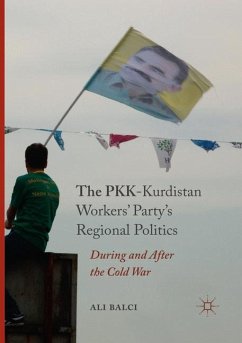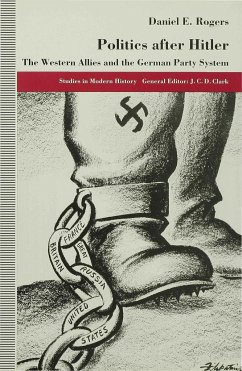
1989 in Central Europe: A Counterrevolution
Versandkostenfrei!
Versandfertig in 6-10 Tagen
91,99 €
inkl. MwSt.
Weitere Ausgaben:

PAYBACK Punkte
46 °P sammeln!
The literature on the fall of communism contains numerous interpretations of the changes that took place in Central and Eastern Europe in 1989, while debates about how best to characterize the fall of the communist regimes have raged for many years. Researchers continue to ponder and argue over how 'revolutionary', as opposed to 'evolutionary' (or 'reformatory') these changes were. In this new study, author Pawel Ukielski proposes the term 'counterrevolution' to describe the historical process that took place and uses it as an analytical construct to better understand the crisis of Soviet comm...
The literature on the fall of communism contains numerous interpretations of the changes that took place in Central and Eastern Europe in 1989, while debates about how best to characterize the fall of the communist regimes have raged for many years. Researchers continue to ponder and argue over how 'revolutionary', as opposed to 'evolutionary' (or 'reformatory') these changes were. In this new study, author Pawel Ukielski proposes the term 'counterrevolution' to describe the historical process that took place and uses it as an analytical construct to better understand the crisis of Soviet communism and the subsequent transitions that took place.












